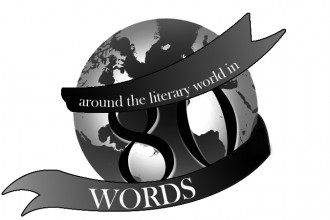By Gareth Trew
The work of writers and poets stands at the precipice of self-defeat.
One of the challenges facing emerging artists – increasingly as art becomes less about self expression and more about marketability – is maintaining our creative integrity. Far too often, we allow our work to be diluted or even disregarded, perhaps because it breaks the current norms too drastically, or due to negative feedback from a more successful artist in the field. If original, exciting work is to be created, it’s imperative we feel free to take risks.
The incredible diversity of art is undoubtedly one of its most interesting aspects. Take poetry, for example. Poets not only write on every conceivable subject, but do it through a myriad of different forms: haiku and other Eastern poetry; traditional fixed form poetry; visual poetry; contemporary free verse poetry; the list goes on. Then there is the variation provided simply by the poet’s individuality. We can read a dozen contemporary free verse pieces about a failed relationship and be touched by each one of them, because they are all as unique as the people who wrote them. This distinguishing difference is frequently jeopardised, especially in the case of young and emerging artists. Because they are more easily caught in the trap of creating art the way they have been advised to instead of following their instincts, they lose one of their most valuable tools – their own voice – which can be very difficult to rediscover. The resulting work is often insipid and commercial, not to mention extremely dissatisfying for the artist. In high-school, for instance, poetry was marked largely on how many poetic devices (rhyme, metre, metaphor, etc) could be incorporated into a piece. I was handicapped by this mindset even years later, to the point that I would change a really effective line simply because an alternative word would create alliteration. It took me a long time to realise why I was unhappy with the poems I was writing.
This is not to say, of course, that we should not allow any outside input into our work. Criticism, when given constructively, is immensely useful – even a single objective response can revolutionise a piece. A good group – be it for writing, theatre or any other field – is an excellent resource because as well as receiving feedback on their own work, participants also digest and assess the work of their peers and art often inspires art. Likewise, a degree of marketability obviously needs to be considered if an artist plans to pursue a professional career – business sense is a necessity of successful business, and the purest creative integrity cannot negate that fact. Some flexibility, then, is key. If we stick too rigidly to our vision for a piece and do not allow for any potential development, the work can feel stagnant and uninspired. Furthermore, if we take so strict an approach with every piece, then our work will likely be too much the same.
Our vision for a piece is vital but by no means sufficient in itself – an enormous amount of work is required to create good art. Even the smallest detail can be impossibly agonising. I generally write several drafts of whatever I’m working on – be it poem, play, article or other – and have many times mulled all week over the wording of a single phrase. Often, I also have to rest a piece even for a couple of months before I can come back to it and edit satisfactorily. Whilst the number of drafts and amount of editing needed will vary from person to person and piece to piece, this work ethic I think is essential. If we don’t pay close attention to detail, what we are left with will be underprepared and generic, and it’s a real pity to see a potentially great idea ruined by laziness.
So, outside influence often proves either a great danger or an opportunity for development. In any case, it is imperative that throughout the creative process, we keep hold of what we’re trying to achieve with each piece and not allow criticism or commercialism to overwhelm us, and we must do so unapologetically. We owe it to ourselves to protect the creative integrity of our work, because there are plenty of people who would take it away without a second thought.
Gareth Trew is a young, Australian writer whose chief passion is poetry; his poems have been published in various print and online journals.




